Hello, and welcome back to the bit-tech Modding Toolbox! In this series we aim to build up a comprehensive list of tools that are useful for modding your PC, ranging from basic edits all the way through to ambitious scratchbuilds. This time round we're having a look at one of the staples of the modding scene, the humble rotary tool.
What's in the toolbox so far?
- Drill Bits
- Heat Guns
- Tools for Marking Out
- Hand Operated Abrasives
- Machine Operated Abrasives
- Rotary Tools...
Rotary Tools
Rotary tools have played and important role in PC modding since the very earliest days. The fact 'to dremel' has become a verb is testament to this. Rotary tools have an undeniable utility, taking up the jack-of-all trades approach to perform a wide variety of tasks that could otherwise potentially require quite a large tool set. This makes them a particularly handy starting tool, as it may be prohibitive to jump in with a specialist tool in all circumstances.
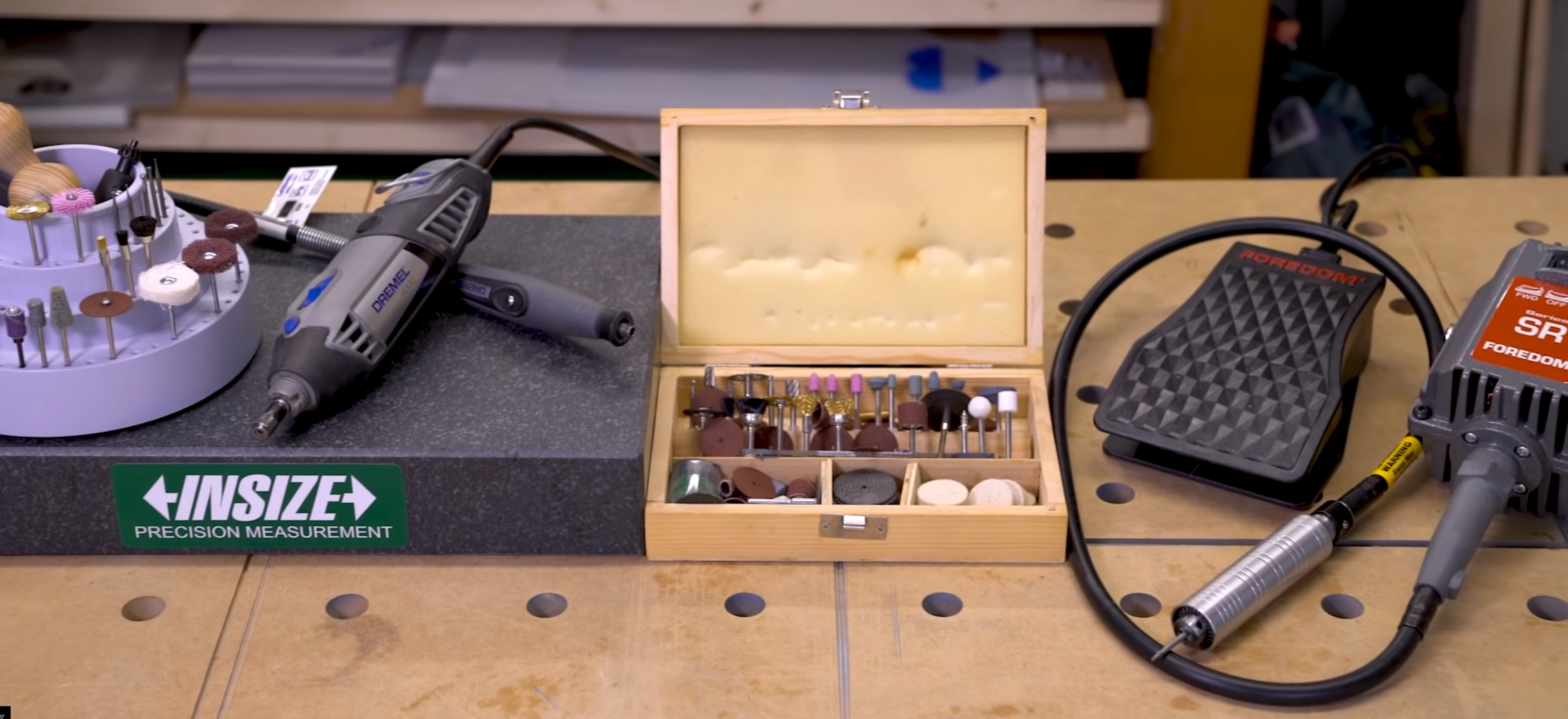
There's quite the dizzying array of rotary tools out there, ranging from the sub-£10 Chinesium specials all the way up to very specific jewellery tools like the GRS air-graver systems. In addition to the tool itself, you also have a huge range of accessories to deal with. On the bright side, it does mean one has a lot of choice, but the downside is wondering where on Earth to begin with all this? That's where we come in!
As with the other toolboxes, this is going to be an overview, mostly because the subject matter is so wide in scope. The aim really is just to give you a little head-start when researching what you're likely to pick up, so let's get stuck in!
Dremels and Handheld Rotary Tools
With Dremel offering quite a few different tools now, I do specifically mean its classic handheld rotary tools (such as the 4300, 3000, 200 and 8220). A quick search on Amazon will reveal just how many similar options there are here; it can be confusing as anything.
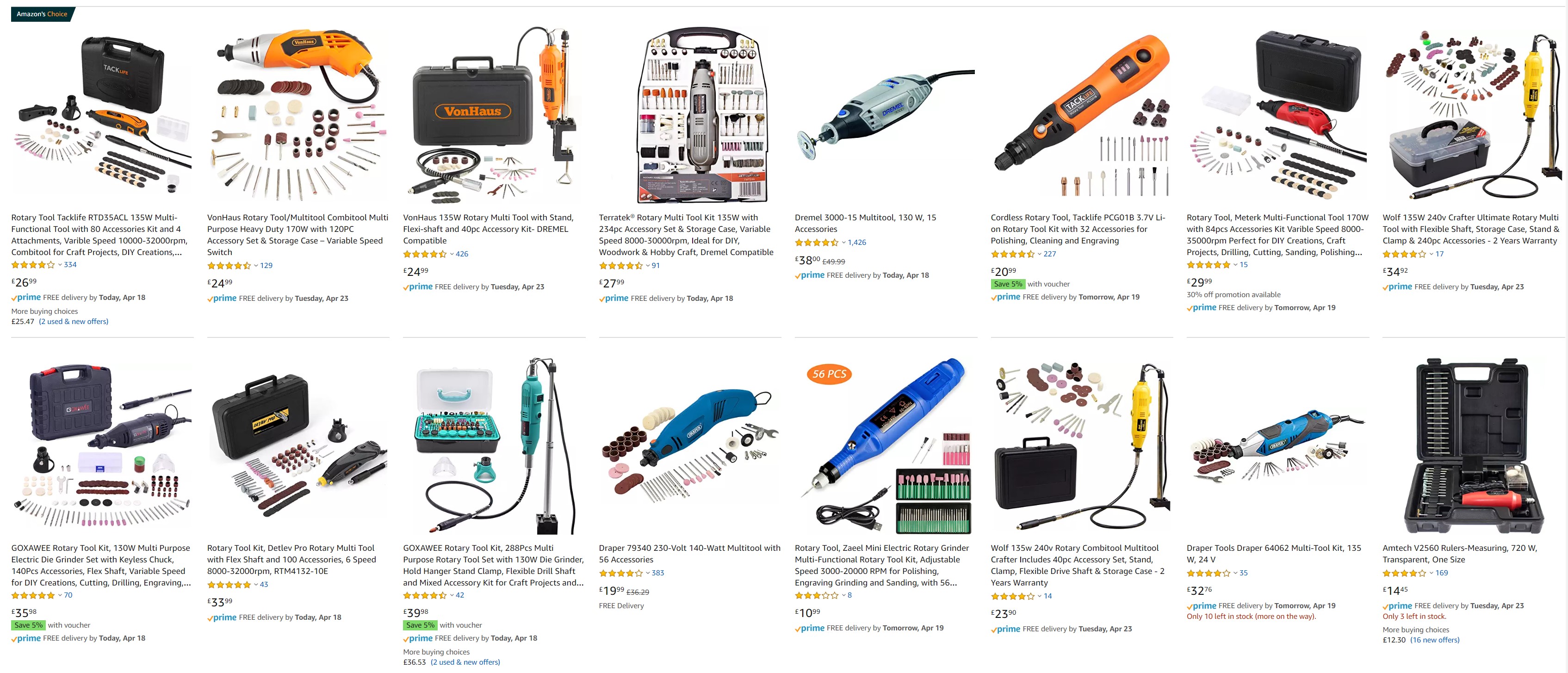
This is where the brand power of Dremel does shine through, and honestly I would just recommend looking for a Dremel-branded tool that matches your budget. It's not that the others won't work (they're simple machines, so you would hope the options would be decent), it's more that you raise your chances of success. I've seen a fair few Dremel clones bite the dust, which usually means you simply have to get a new one. At least with Dremel you will have the potential for customer service and repairs or returns in case something is faulty. Regardless, there are a few points I would definitely consider:
- Build quality - It sort of goes without saying, but you want a tool to last a while under tricky conditions. Check customer reviews for any unit to see if there are recurring faults. Things like brushes wearing out or fragile housings tend to be consistent and might pop up in multiple reviews.
- Power and torque - You'll never get a lot of torque from a handheld tool, but some definitely have more than others. Unfortunately, much like with case fans, the stats on units are meaningless; you have to go by reviews on this one. Be careful if considering higher-wattage budget options - the results could be shocking.
- Corded or cordless - My preference here is for corded, but battery tech has come a long way recently, so a modern cordless unit may well do the trick for you. Corded units will be more powerful, a point worth considering if you'll be cutting and sanding materials like the sheet steel commonly found in PC cases.
- Flex shaft included - It's not a necessity to have one, but honestly they can be so useful. Sometimes it can be a pain reaching into small spots with a full tool, and a flexible shaft is very convenient here
- Accessory compatibility - This point is usually pretty safe as most rotary tools will all fit the same accessories. The majority will have a collet chuck of sorts that will allow for different tool shaft sizes to be used. So if you bought, say, a Ryobi tool, you could use Dremel accessories if you wished. The inverse is being able to use generic accessories too, which can generally be found for much cheaper
- Variable speed control - This one's an important point, variable speed control allows for a lot of flexibility with which actions you can perform. High speed is great for cutting thin sheets or engraving, but for buffing plastics it's no good, as it can melt the surface. I would consider this a crucial feature.
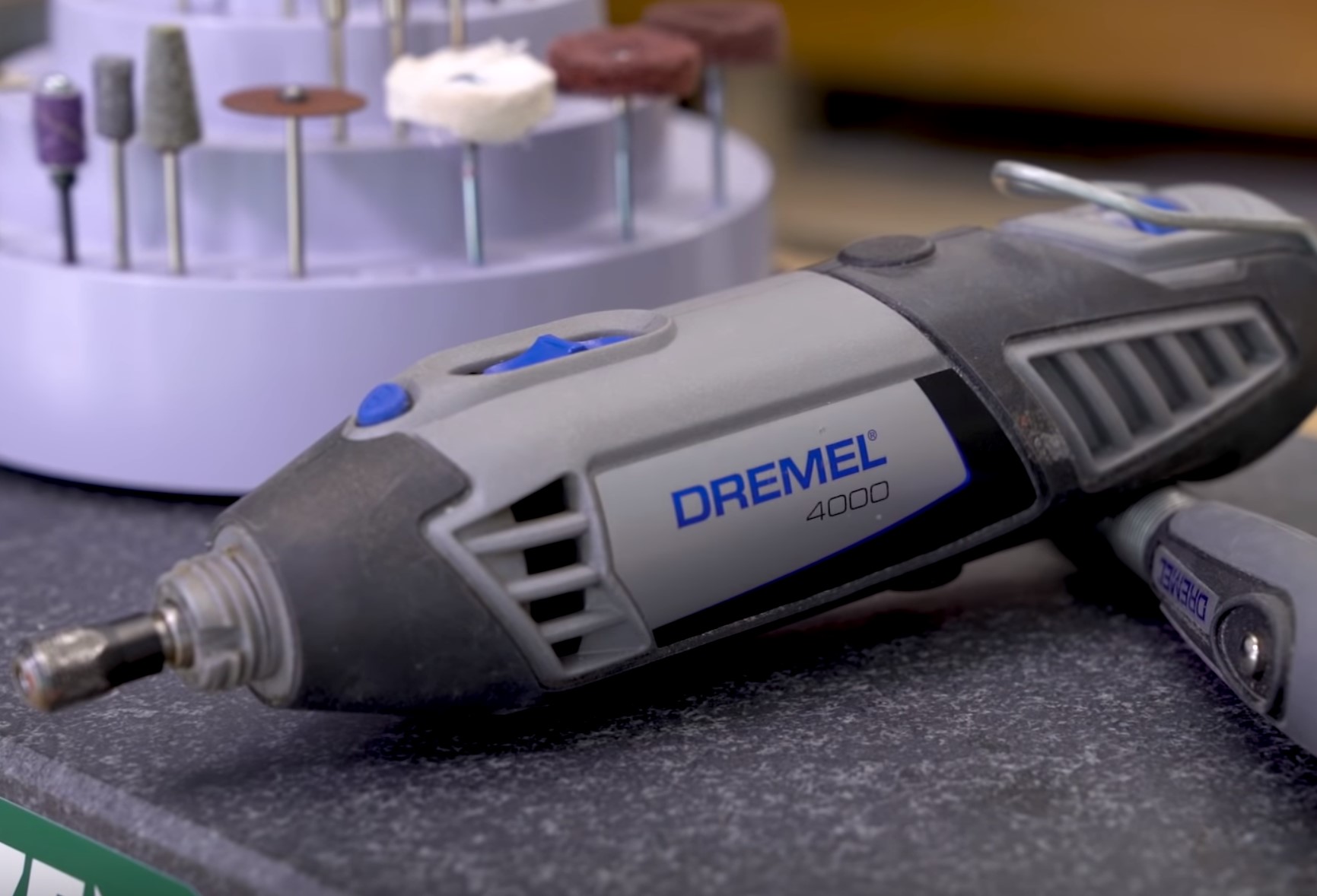
My first power tool purchase was a Dremel 4000. Whilst I don't really like using it all that much now, it's lasted me quite a few years and it definitely helped a lot in my first mod, as it sort of did everything. Pair one up with some of the hand tools and parts mentioned in the other toolbox articles and you have a formidable setup.
Pendant Motors (Flex Shafts)
Probably the biggest other category worth considering as a rotary tool is a pendant motor, or if you're in the USA, a flex shaft. In essence this is a motor that you hang up on a stand or the wall, one which has a flexible shaft leading to a hand piece. I recently picked one of these up, and honestly it's been an enlightening experience. If you're willing to spend more on a tool that will offer you much more oomph and flexibility, I would 100 percent recommend grabbing one of these over a handheld unit.

There are a few different brands about, including Dremel with its 'Fortiflex' pendant motor, but a staple of the scene is Foredom. These tools are commonly used in the jewellery sector, so you'll often find a selection of motors in online retailers who specialise in that field. They offer a number of advantages over the handheld tools, namely power, build quality, foot pedal control, and interchangeable hand pieces.
Foot pedal control takes a little getting used to at first, but it's really rather convenient. Having the option to change the speed on-the-fly without having to take your hands off the handpiece or your workpiece is a real boon, especially on more complex shapes where perhaps a one-speed approach is difficult. I like this a lot for polishing plastics or using tiny burrs; it makes controlling the finish much easier.
In terms of power, you get considerably more torque from a pendant motor, which is great for grinding operations, using larger tools, or cutting through thicker materials with cut-off discs. The Foredom SR motors are built like tanks; the solid cast motor housing could honestly be used as a weapon. The removable handpieces are also very convenient since it gives you a wide choice of possible accessories. The one I have came with a standard keyed chuck, which is very convenient for using any manner of accessory, as you don't need to have specifically-sized collets. Other options include quick-release handles or specific hammer-action handpieces used for engraving.
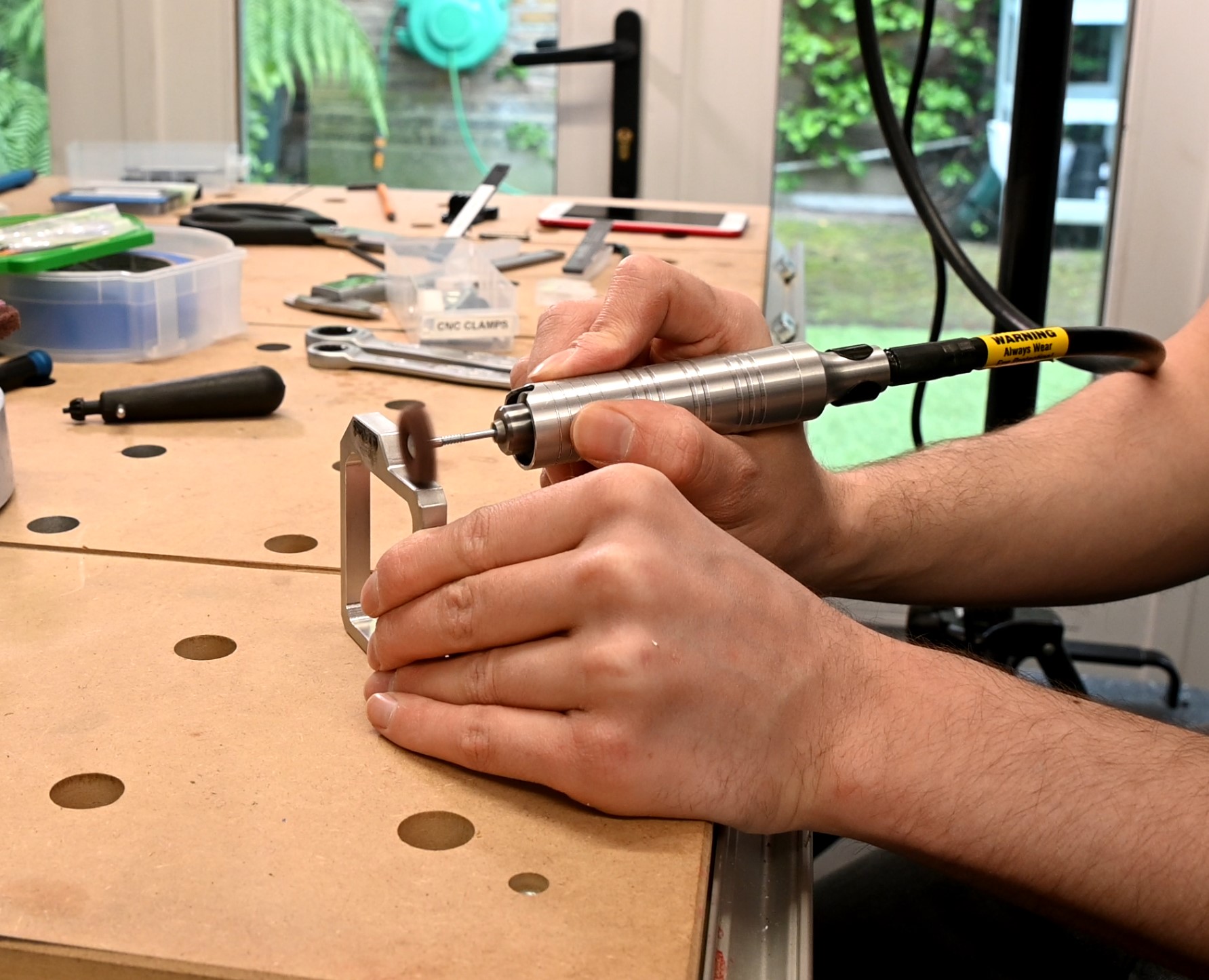
Related to pendant motors are micromotors, which are best suited for finer work, as they operate at higher RPMs (38k all the way to 300k for the GRS air-gravers!). They're almost like a hybrid between the handheld units and the pendant motors in that the motor (for electric options) is found in the handle, but control is handled via a separate unit and/or foot pedal. The idea here is that there's no kickback on the handle (a shaft-driven tool will jerk if you jump to full speed quickly), which is a boon for detailed jobs. They tend to be more expensive than the pendant motors, but it's likely that if you're looking at these particular tools you probably know what you want and are after something specific.

MSI MPG Velox 100R Chassis Review
October 14 2021 | 15:04

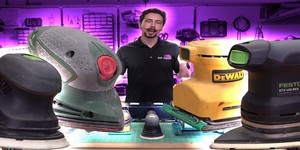






Want to comment? Please log in.